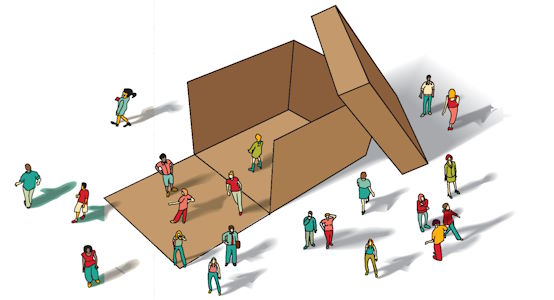Tired But Wired: Sleep and ADHD
It’s 11:30 pm, and after a long day, you crawl into bed, ready to rest. But as soon as your head hits the pillow, your mind starts racing. Thoughts bounce from one to another, keeping you wide awake, and before you know it, hours have passed without sleep. Then, just as you finally drift off,…
Read MoreSeeing ADHD in Full: Permission as a Foundation of ADHD Care
One foundational step in managing ADHD is giving yourself permission to do what needs to be done about it. At first, this may feel counterintuitive—after all, no one asked for ADHD, and no one sought your consent to have it. But in this context, permission means something deeper: recognition, self-compassion, and insight. The struggle with…
Read MoreADHD and Entrepreneurship Can Go Hand in Hand
For most of my life, I didn’t know I had ADHD. I just knew that school felt harder for me than it did for others. I could focus intensely on things that fascinated me but struggled to pay attention to anything that didn’t. Staying organized wasn’t my strong suit—I’d forget assignments, miss deadlines, and sometimes…
Read MoreThe State of ADHD Advocacy: Progress, Challenges, and How You Can Take Action
In the United States, we’re at a pivotal moment for ADHD advocacy. Over the last several years, significant strides have been made—such as the work by the American Professional Society of ADHD and Related Disorders (APSARD) and CHADD to develop and educate clinicians about the first adult ADHD treatment and diagnostic guidelines. Yet at the…
Read MoreHow to Help Your Daughter Manage Executive Dysfunction
Executive functions are essential self-regulating skills everyone uses daily for almost everything, including organizing, prioritizing, and thinking before speaking. These skills are developed and refined during childhood. Girls with ADHD often miss out on developing these skills, however, and have executive function impairments or executive dysfunction. Your daughter may have difficulty finishing tasks on time.…
Read MoreSelf-Esteem and ADHD
Self-esteem involves one’s evaluation of oneself, which can be positive or negative. Low self-esteem involves low levels of self-respect, low self-acceptance, and a negative sense of self-worth. This research update considers two studies that reviewed the existing literature regarding self-esteem in individuals with ADHD. The first study reviewed recent studies that examined self-esteem in adults…
Read MoreThe Impulsive Friendship Cycle
For many adults with ADHD, finding someone we click with, someone who understands us, and someone who makes us feel seen and heard is akin to falling in love. Our brains crave a blend of dopamine, oxytocin, and serotonin that is released by a positive connection with another person. This itch, or rush, triggers our…
Read MoreReframing How to Handle Tasks
For people with ADHD whose executive function challenges lead to frequent bouts of discouragement, disappointment, and demoralization, The Anti-Planner: How to Get Stuff Done When You Don’t Feel Like It may help them to see their challenges in a new way. Dani Donovan knows from personal experience the emotional impact that difficulties with time management,…
Read MoreGrandma Has ADHD: Our Three-Generation Journey of Discovery
As a child, I remember my mother reading for hours on end in her room while I, an only child, ran from thing to thing, constantly looking for people to play with and something to do. I couldn’t sit still to learn to read until I was in second grade, and even then reading was…
Read MoreManage Those Big ADHD Emotions at Work
Folks with ADHD tend to feel their emotions more strongly. This also means that you then tend to wear those emotions on your sleeve and to be more influenced to act on your emotions. This can make you a lot of fun to be around: “Let’s go to the beach today!” But when those stronger…
Read MoreHow Does Fidgeting Enhance Focus for Individuals with ADHD?
Eight-year-old Joey gets in trouble daily at school for restless behavior that involves fidgety movements with hands and feet. His father sits in the office boardroom during an hour-long meeting where he rocks in his chair and doodles while taking notes. Both have been diagnosed with ADHD. These behaviors are presumed to disrupt their concentration…
Read MoreTaming the Wandering Mind: Strategies for Helping Children and Teens with Cognitive Disengagement Syndrome
Since the publication of our article on cognitive disengagement syndrome in the April 2023 edition of Attention, there have been growing numbers of caregivers, clinicians, and educators looking for ways to help children and teens displaying CDS symptoms. CDS is the term used to describe a set of symptoms including excessive internal distractibility (mind wandering,…
Read More











